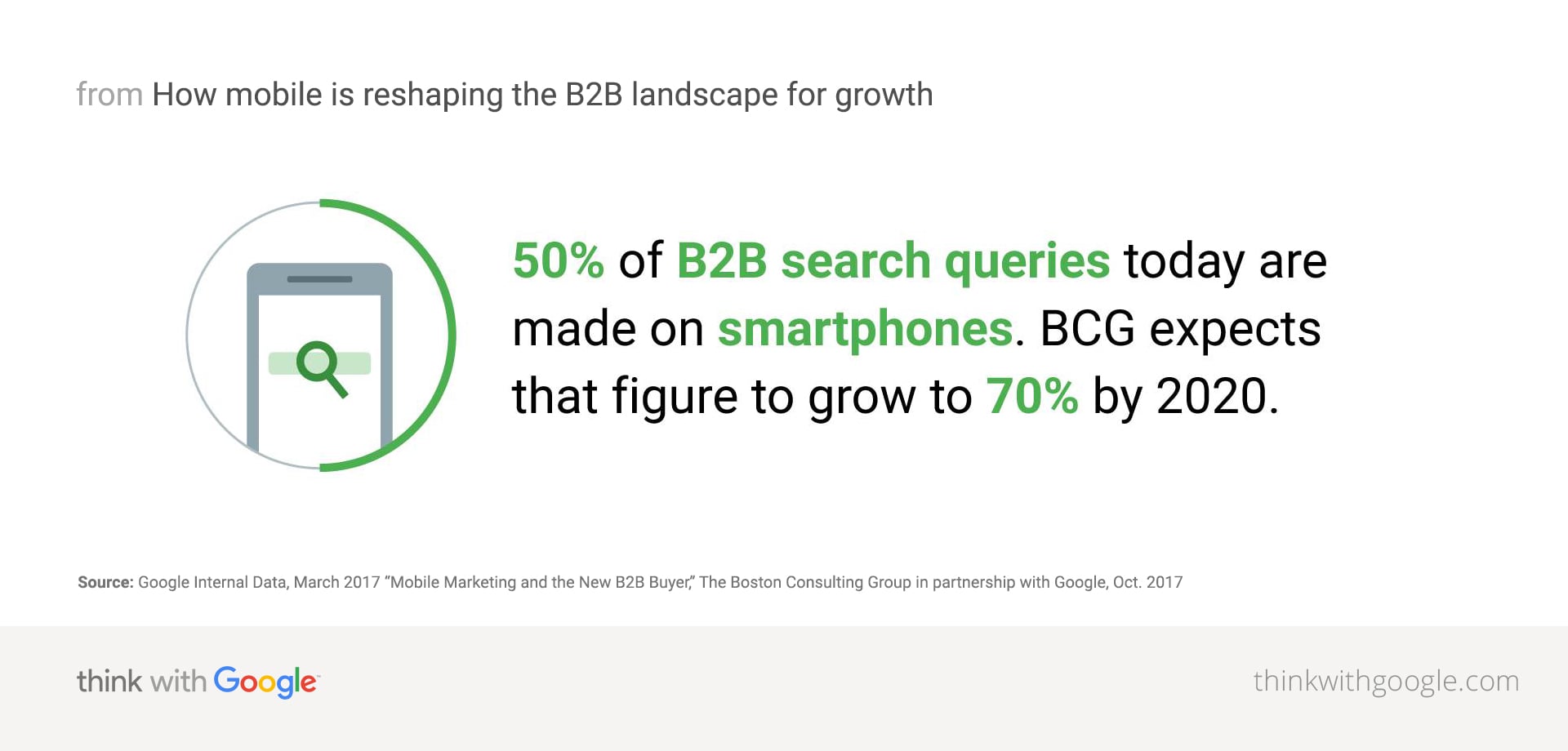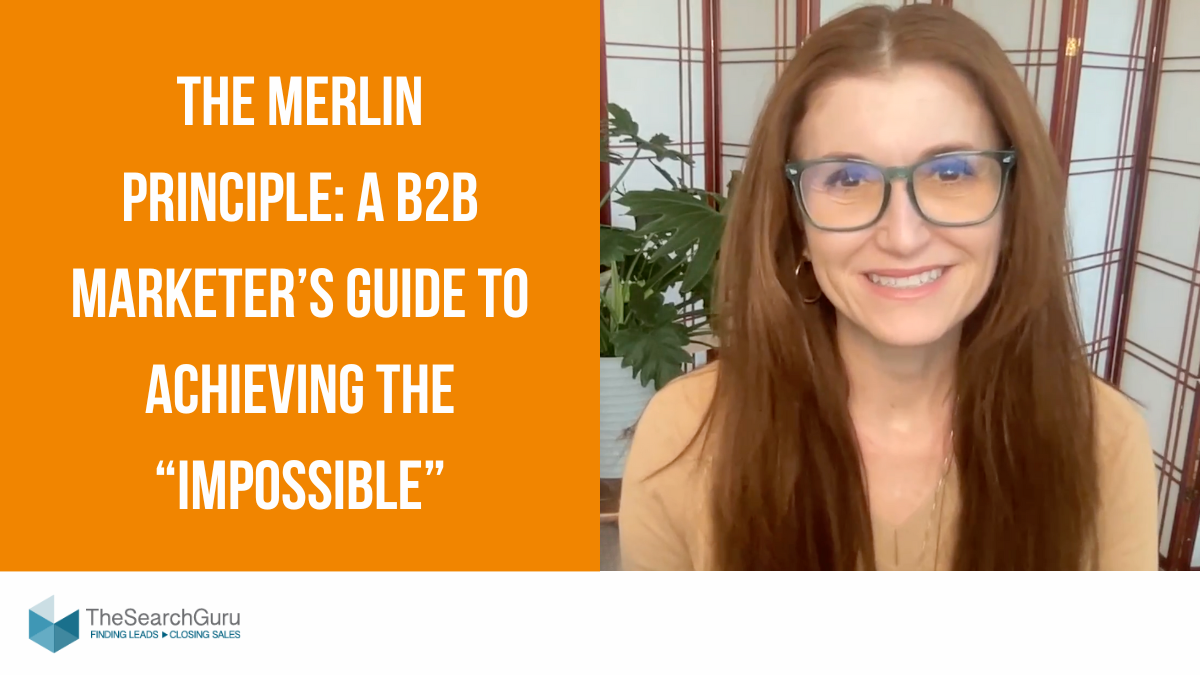The market for B2B Ecommerce is massive and growing rapidly, and with the right tools and strategy, B2B Ecommerce can cut costs, shorten the sales cycle, increase brand awareness, drive leads and grow sales. Here are the top eight marketing challenges that B2B Ecommerce companies face. Let’s get them out the way so you can be (even more) successful:
B2B Ecommerce Marketing Challenges
#1 Conversion Rate Optimization
When we talk about digital marketing, we somehow tend to lean towards discussions about attracting more traffic to our websites. There is but one better approach towards improving websites’ profitability and that is optimizing conversion rate (CRO). Enabling for more conversions will benefit all digital channels and you will end up with more revenue. You own your site and CRO is entirely reliant on you. But how do you go about it?
- Your site needs to provide customer-first experience for current clients and serve as a tool to generate leads for new customers.
- Make your site an easy-to-use tool for your customers.
- Improve their experience by being as helpful as possible. E.g. consider what questions they might have on each step of the conversion path and try to answer them. Having FAQ sections on product pages proves beneficial for both CRO and SEO.
- You can understand the behavior of your current customers as well as potential leads by studying their behavior, where they click, and what gets them to checkout.
- Conversion rate optimization will help increase leads and sales so make sure you have all important elements on your landing pages (see image below and read more on the b2b ecommerce landing pages article)
- Find the right tool and strategy for conversion rate optimization your site.
- Check the Conversion Optimization Checklist: How to design and optimize marketing pages for conversion by our UX expert Georgi Nemtzov.
- And tactics to keep users on your page longer.
#2 Conversion Tracking
Conversion tracking is essential to any eCommerce site. However, in our work we rarely audit sites without conversion tracking issues. Are you tracking all important conversions on your b2b website? If not, check the list below:
- Start by auditing your website tracking system.
- Issues like having bigger portion of your conversions under Direct or Referral channel should be a red sign that something might not be working correctly with your conversion tracking.
- Check for issues such as double tracking in Google Ads, duplicated content, and cross domain tracking.
- You will save time and money once your conversion tracking is set up properly.
- Here you can find information about the top 3 B2B conversion tracking mistakes that affect your profit
#3 Customer Relationships and Loyalty
A unique challenge that B2B eCommerce companies face is the need to actively stay on top of all of their customer accounts and understand the customer’s overall health as a client.
- Integrating a CRM software is important and the easiest way to maintain customer relationships and status on a B2B eCommerce site.
- The function of eCommerce for B2B should not be to replace your sales team but allow your sales team to function more effectively and close more sales for your business.
- Another great tool to maintaining customer relationships on your site is implementing live chat. Having a live support system installed will help you immediately answer questions from current customers or potential clients while providing a personal interaction and experience on your site.
- Lastly, using a marketing automation tool will help with the overall customer experience on your site.
#4 SEO (Search Engine Optimization)
People start their research online. And on mobile devices. For sure they would use other channels before choosing a b2b partner. But the initial research (as a rule) starts with a Google search. And that’s what SEO stands for — how to get found on Google search. Brace yourself before diving into the ocean of SEO and content creation.
- First of all, check if and how you appear for your brand name searches. Make changes if what you see is not what you expected.
- Next, you can identify for which non-brand terms you want to get found. It is highly probable that you are not ranking for those terms if you haven’t invested in SEO before. Identify strategic keywords most valuable for your business, use industry terms and jargon, and plan for creating content that is related to the terms you want to rank for. But that will take time and won’t have immediate impact on your business.
- Low-hanging opportunities: if your website is not brand new, you might have created content in the past and forgotten about it. There are tools that will show you where your content is ranking. By checking the data you can identify keywords and pages that are ranking relatively high in Google search results and optimize for those. You can read more about content optimization here.
#5 Branded Content
Focusing on a marketing strategy interweaving informative content is essential in B2B ecommerce.
- If a user is not presented with all of the information (from size, to color, to how-to-guides), they will seek that information somewhere else which can result in the consumer entering another purchasing funnel outside your business’s eCommerce channel.
- Prove your value to customers for free through educational content such as case studies, eBooks and whitepapers.
- Then close the deal once they trust you.
- Your marketing strategy should include producing content for other sites to set yourself up as an authority and industry leader.
#6 Email Marketing
Translating B2C email campaigns to B2B is a huge pitfall. In B2B there is a need for professional email marketing, but often a lack of channel-specific knowledge.
- With B2B, you will deal with longer buying cycles and multiple people involved in the buying decision.
- B2B recipients will not buy the instant you email them nor is it just one person reading the email.
- This means multiple emails spread over a longer period of time targeting more than one person, geared toward lead nurturing with call-to-actions generating interest.
- Put an email marketing strategy in place to diversify your messages and collect additional data points for targeting purposes.
- Make sure your CTA doesn’t lead to a dead end!
- Marketing automation forms the core of this process.
- B2B Email Marketing will help bring in conversions and add value across the customer lifecycle.
#7 Social Media
While it may seem social media is more relevant and needed in B2C eCommerce, social media is a great tool to drive traffic and qualified leads to your site in B2B eCommerce.
- 83% of b2b marketers use social media!
- Not only does it drive traffic, it creates trust for your customers through an overall brand voice and image.
- LinkedIn ranks high as a B2B eCommerce marketing platform turning content into leads. Here’s more information on how to use LinkedIn!
- Integrating your social media channels on your eCommerce platform is essential for lead generation, branding, and overall increasing sales.
#8 User-Experience
While B2B eCommerce sites can get very complex with all of the customization needed for different customers, you want to make sure your site is overall user-friendly.
- In B2B, it might seem more common that customers and potential clients are using a computer when placing orders for their business; however, with ease of accessibility and convenience, the majority of research starts on mobile (50% of b2b search queries today are made on smartphones.)

- This means that your website needs to be responsive and easily navigable from a mobile phone or tablet.
- Furthermore, if your customers are on the road or have to move from jobsite to jobsite, providing them the ability to make a purchase from their mobile phone will only benefit your sales.
- Having a mobile optimized website and element to your website can help you stand out from competitors.
- Ensure the experience for the mobile user on all types of devices is optimized through a responsive design, easy navigation, and proper testing.
Let’s work on this together: book a free work session
All companies we speak with have unique problems, and we’ve yet to find anyone who isn’t primarily plagued by too few resources. Take us up on a free training/work session where we can discuss your unique problems and offer solutions from top B2B marketers. Book one here:







